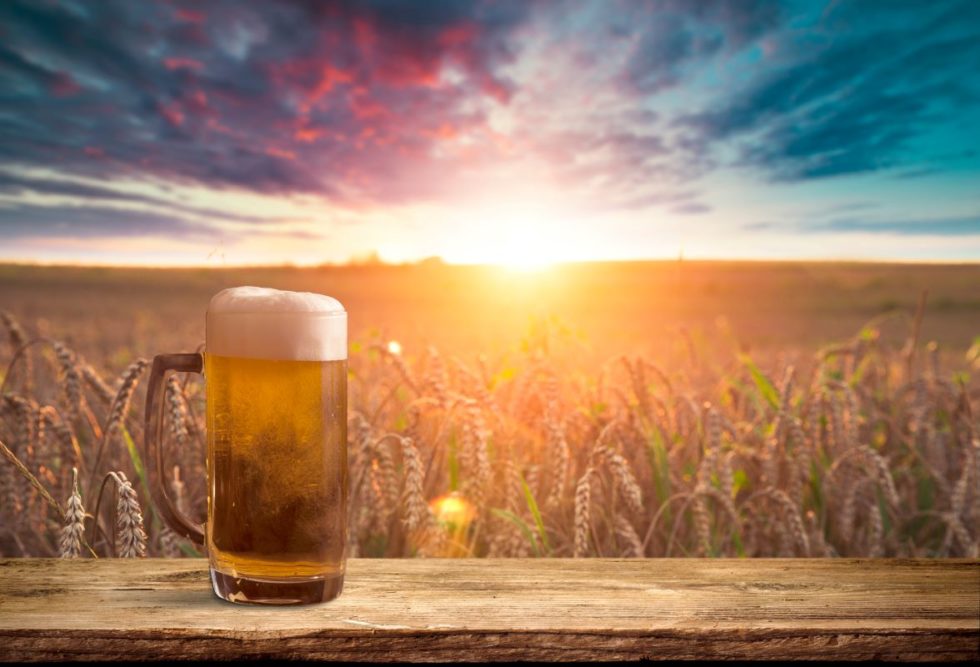CHICAGO — Greg Belt is on a mission to make ingredients derived from spent brewer’s grain from barley used in beer processing a staple in food and beverage product development. As the chief executive officer of Evergrain he has shepherded the company from a startup incubated within AB InBev, one of the world’s largest brewers, to an ingredient business seeking scale through its first manufacturing plant in St. Louis.
But Mr. Belt’s aspirations for spent brewer’s grain go well beyond a single manufacturing plant in the Midwest. He sees a global opportunity for the ingredients derived from what was once a waste stream primarily sold for animal feed.
Mr. Belt started working with spent grain in 2013. He had been charged with selling the product for animal feed but felt more could be done with the material.
“Barley goes into a brewery, the brewers solubilize all of the starch through fermentation and what’s left over is protein and fiber,” he said during an interview at IFT FIRST, the Institute of Food Technologists’ annual meeting and expo held in Chicago in mid-July. “And I’m like protein and fiber? That sounds pretty good.”
For the next six years he and his colleagues researched what else could be done with the material.
“The holy grail was to separate the protein and the fiber,” he said. “We realized if we could do that it would be a much bigger value add. So, we came across this technology to separate it, we validated it — which took several years — and we realized we had ingredients that could solve some real significant product development challenges.”
Additionally, because spent grain is derived from the waste stream of beer manufacturing, it qualifies as upcycled and may be marketed as featuring a sustainability attribute some consumers find compelling.
Today, Evergrain markets three ingredients through its Everpro brand — original, which is a protein isolate that works  James Wilks (left), the founder of FYTA, and Greg Belt (right), the CEO of Evergrain. Photo: Evergrain
with chocolate, caramel, coffee and tea applications; neutral, which is light in color and may be used in vanilla-flavored beverages and plant-based milks; and clear, a protein isolate that may be formulated into sports nutrition beverages.
James Wilks (left), the founder of FYTA, and Greg Belt (right), the CEO of Evergrain. Photo: Evergrain
with chocolate, caramel, coffee and tea applications; neutral, which is light in color and may be used in vanilla-flavored beverages and plant-based milks; and clear, a protein isolate that may be formulated into sports nutrition beverages.
Mr. Belt admits introducing a novel ingredient to the market is “tough.”
“One of the initial observations we had is barley protein is so different from pea and others — it’s not a one-for-one solve,” he said. “If you take soy protein out of an application and put in Everpro the consumer is going to notice.
“So, we don’t do many renovation projects. We are mostly focused on new products.”
To drive awareness of Everpro’s potential, the company has focused on working with food and beverage entrepreneurs. Startups currently using the ingredient in products include the Athletic Brewing Co., a manufacturer of non-alcoholic beverages; FYTA, a maker of ready-to-mix protein powders; and Naak, a sports nutrition company, to name a few.
“What we have found working with some great startups is they are quick to market as well as quick to tell the story,” Mr. Belt said. “They are a little more risk tolerant.
“I think this year we will have between 15 and 30 product launches, mostly in small startups. Those products are now getting to market and some of the major food companies are taking notice. We now have projects with several large companies, but those projects won’t come until 2024.”
Mr. Belt said Evergrain is currently focused on three product categories — dairy alternatives, sports nutrition and ready-to-mix protein powders.
“These are huge spaces, and they leverage the strengths of the ingredient,” he said.
As Evergrain advanced its ingredient development efforts, it also focused on developing a manufacturing footprint. In July 2022, the company began operating its production facility on the Anheuser-Busch brewery campus in St. Lous.
“We have about 60% of the capacity installed,” Mr. Belt said. “The facility has a total design capacity of 7,000 tons of protein isolate today.”
But Mr. Belt sees a global opportunity for the ingredients derived from spent grain.
“We estimate the world has 9 million metric tonnes of spent grain that needs to be saved,” he said. “The brewing industry is huge and embedded in that is 3 million tonnes of protein and about 5 million tonnes of fiber.
“If you look at just the protein; if you could capture the volume of that protein, you could double the volume of plant protein isolates in the industry. So, this can be a tremendously important source (of protein) in the plant-based world.”
Recognizing that Evergrain is transitioning from a startup phase to gaining scale, Mr. Belt said 20 years in the future he envisions Evergrain facilities in place near major breweries around the world.
“We can probably bring in 20 breweries and produce 100,000 tonnes of protein isolate,” he said. “With patience we see opportunity.”






